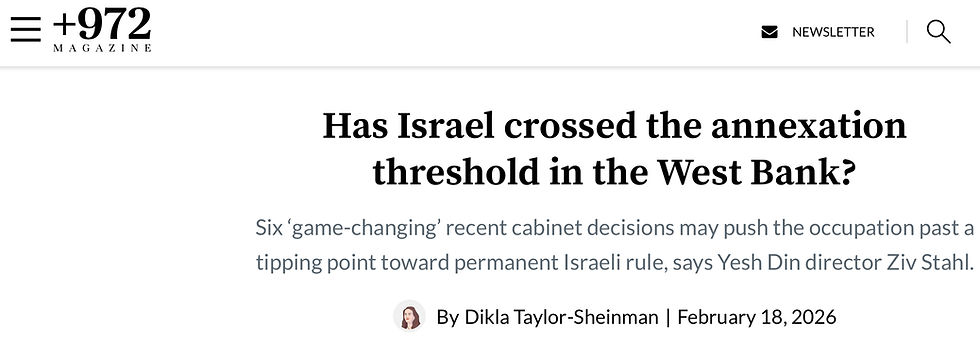James Ron - Why is Turkey in Libya?
- James Ron

- Aug 17, 2023
- 3 min read
Updated: Aug 13, 2025

This week, a brief clash between rival armed factions in Libya's capital city, Tripoli, again emphasized the country's unresolved civil conflict. This prolonged struggle has led to two competing political authorities, each holding sway over distinct territories within Libya's eastern and western regions.
To the east, authority is consolidated within the Tobruk-based House of Representatives, which governs with the support of the Libyan National Army, led by General Khalifa Haftar.
Political control in the West resides with the Government of National Unity, headquartered in Tripoli and endorsed by the United Nations. This body is backed by several armed militias, two of whom (the 444 Brigade and the Special Deterrence Force) fought with each other this week for unclear reasons.
One crucial backer of the Government of National Unity is Turkey, positioned a few hundred miles northeast across the Mediterranean Sea. Turkey has established five bases within Libya.
Turkish engagement in Libya dates back to the early 1970s when its construction industry undertook significant infrastructure ventures for the government of Libyan ruler Moammar Gaddafi, the country's erstwhile strongman. By 2010, just before Gaddafi's regime crumbled, Turkish construction projects in Libya were valued at almost $30 billion.
The first phase of Libya's civil strife unfolded in 2011 as Gaddafi's loyalists confronted NATO-supported opposition forces, culminating in the latter's triumph. Subsequently, a second phase of conflict raged from 2014 to 2020, ultimately leading to the de facto partition of Libya into its western and eastern enclaves.
Reports from 2019 indicated Turkey's role in facilitating the transfer of Syrian combatants to bolster the eastern Tripoli government, with the Ankara-based private military firm, SADAT, playing a pivotal part.
Early in 2020, Turkey's legislative bodies formally sanctioned a government initiative to aid the government in Tripoli, countering General Haftar's advancing troops. Turkey dispatched military advisors, weaponry, drones, and armored vehicles. These tipped the scales in favor of the Tripoli forces, fending off Haftar's columns and resulting in a ceasefire and the country's effective division.
One of Turkey's strategic motivations for involvement in Libya is the Blue Homeland (Mavi Vatan) framework, a maritime vision for Turkey that seeks a sphere of influence in the Black Sea and eastern Mediterranean. Advocates of this approach, many of whom are officers in Turkey's navy, view Greece, bolstered by the support of the United States and select European nations, as a significant rival. This perspective often refers to Ottoman history, when the Istanbul-based empire's navy held sway over the eastern Mediterranean.
However, today's Blue Homeland doctrine is not really about naval supremacy. Rather, it focuses on Turkey's claims to the lucrative subsea resources of the Mediterranean seabed.
In 2019, Turkey and the Tripoli-based Libyan Government of National Accord inked a Maritime Boundary Treaty delineating an "exclusive economic zone" connecting the two nations. This accord, contentious in nature, was met with resistance from Greece, Egypt, and other quarters, who deemed it a violation of international law, neglecting significant Greek islands like Crete and Rhodes.
It seems likely that this Turkish-Libyan maritime pact aimed to legitimize prospective Turkish ventures for oil and natural gas extraction off the Libyan coastline.
In 2022, Turkey and the Tripoli government further solidified their collaboration by signing a memorandum of understanding exploring oil and gas reserves within and beyond the offshore realm. This agreement posed a direct challenge to neighboring states, each vying for access to the abundant natural gas deposits hidden beneath the Mediterranean seabed.
In this evolving regional landscape, Egypt and Israel have actively sought to enhance their gas exports to Europe, diminishing reliance on Russian supplies. Simultaneously, Israel resolved maritime disputes with Lebanon, paving the way for mutual drilling rights. An additional collaboration between Israel and Cyprus revolves around a shared pipeline venture. Meanwhile, Turkey's exploration activities near Cyprus have escalated tensions between the island's northern and southern segments.
Turkey is strategically countering the competition for regional natural gas resources by leveraging its foothold in Libya.
As recently as Sunday, Turkey's defense minister asserted that a comprehensive solution to Libya's challenges would remain elusive without his country's engagement.
About James Ron
James Ron is an author and social scientist whose career has spanned military service, human rights investigations, journalism, and university teaching. He is working on a memoir, Azimuth, which reflects on a life lived at the intersection of political violence, moral responsibility, exile, and personal transformation.
Learn more at www.jamesron.com | www.jamesron.org | www.jamesron.net
Connect: LinkedIn | ResearchGate | Google Scholar



Comments